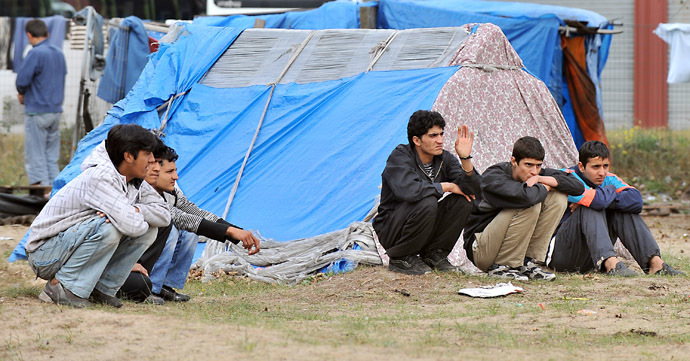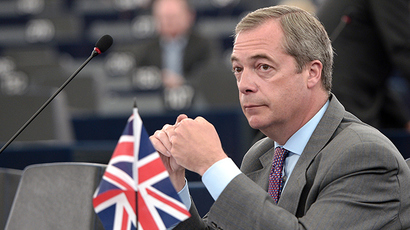Mass immigration to strain UK infrastructure – report

Population growth caused by mass immigration will place a strain on British infrastructure, claims a think tank, despite previous evidence that migrants contribute more to the economy than they take.
The current financial benefits of migration, including GDP growth and higher wages, will be outweighed by the pressures of a larger population, says Cambridge economics expert Robert Rowthorn for Civitas.
“Immigration on the scale the UK has experienced in recent years has many potential consequences,” says Rowthorn. “If it persists over a long period of time, it may radically alter the cultural, ethnic, racial and political character of this country.”
Around 130,000 people migrate to the UK from EU countries per year, with movement from Poland expected to fall and numbers from Bulgaria and Romania likely to either grow or remain static.
The UK’s population could grow by 20 million over the next 50 years and 29 million over the next 75 years, according for the Office for National Statistics, if a “high migration scenario” occurred, impacting on housing, land, schools, hospitals, water supplies and transport.
“If net migration from the EU continues at the present rate, it will be virtually impossible to achieve David Cameron’s target of net migration ‘in the tens of thousands’,” said Rowthorn.
The study acknowledges that immigration is currently having a positive effect on the economy. A study by University College London (UCL) published in January said immigrants to the UK since 2000 have made a "substantial" contribution to public finances.
The UCL report found that immigrants who arrived after 1999 were 45 percent less likely to receive state benefits or tax credits than UK natives in the period 2000-2011 and 3 percent less likely to live in social housing.
Rowthorn’s report, however, warns that if future immigrants fail to find work in a competitive jobs market, or take low-skilled jobs from British workers, the tide could turn.

“Even on optimistic assumptions, the economic and fiscal gains for existing inhabitants and their descendants from large-scale immigration are small in comparison to its impact on population growth,” Rowthorn said.
The author recommends controls that would be sympathetic to the needs and interests of migrants, many of whom left their home countries in search of better opportunities and quality of life.
“Controls over migration from poor countries should be designed in such a way as to promote their welfare and economic development,” Rowthorn urged. “Migration policy towards these countries should be seen as a complement to the official aid policy and not as a means of enriching ourselves at their expense.”
David Cameron has amplified his rhetoric against immigrants over the past year to win back voters from the Euroskeptic and anti-immigration party UKIP. In a recent policy shift, he announced EU migrants could now only claim benefits for a maximum of three months, down from six.
These legislative changes, which apply to child tax credit, child benefits and job seeker’s allowance, will be implemented in November. They follow a swathe of measures to limit migrants’ access to NHS treatment, housing and welfare introduced earlier this year.
The European Commission (EC) has made it clear that it endorses the principle of free movement within the EU, where citizens have the right to work and live in all member states. But the coalition’s planned reforms to migrants’ benefits undermine this principle.
Earlier in 2014, the UK government faced potential legal action from the EC as a result of its efforts to impose restrictions on migrants’ benefits.














